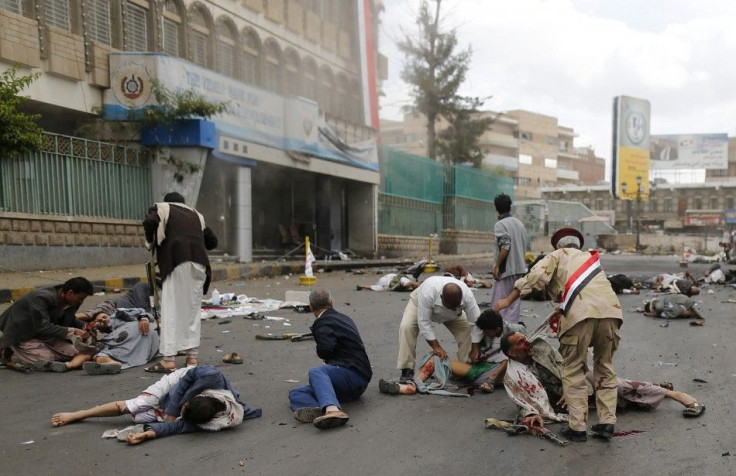Young Teen Fighter Says ISIS Uses Drugs On Suicide Bombers To Get Them Perform The Act

ISIS, even on its own so-called people, uses force and fear to get things done. People would have thought fighters of the Islamist jihad group are afforded certain privileges at least. But Kareem Mufleh, a young 15-year old ISIS fighter captured by a Kurdish group early this year, presented an uglier picture.
Mufleh, whose face was covered throughout the interview with CBS News, readily admitted that he was indeed one of the ISIS' fighters. But he likewise easily defended his entry into the blood-hungry band was a choice between life and death; he chose the former.
Mufleh said that when the ISIS eventually came and captured their village, the men were separated and killed. Then the much younger boys are detained and trained to become one of them. He shared that he saw how the ISIS massacred numerous people, including women for simply wearing clothing that doesn't cover enough flesh. He told of an incident where a woman, presumably a new bride, was killed "because her wedding dress showed her neck and bare arms."
But what struck as an upsetting revelation in the interview was how suicide bombers are groomed to carry out their jobs. He told the CBS News interviewer that ISIS gives its designated suicide bombers Zolam, an anti-anxiety drug, before they are hurled into the battleground. The drug, he said, apparently makes all mental capacities numb. "That drug makes you lose your mind," he said. "If they give you a suicide belt and tell you to blow yourself up, you'll do it."
In Islam, suicide bombers are celebrated and revered because believers of the faith know these people offered themselves to "kill infidels in battle." Suicide bombers in Islam are known as a Fedayeen or Shahid - a martyr.
According to the portal TheReligionofPeace.com, Muslims carry out such self-detonation tactics not out of desperation or just to simply commit suicide. Muslim suicide bombers do it for the ideology, because the "Quran promotes martyrdom by promising paradise to those who lose their lives for Allah."
"Typically, most suicide bombers are psychologically normal and are deeply integrated into social networks and emotionally attached to their national communities," Yale Center for the Study of Globalization said. "Suicide bombings have high symbolic value because the willingness of the perpetrators to die signals high resolve and dedication to their cause. They serve as symbols of a just struggle."
But Mufleh's account presented a different scenario. So much different for the ISIS' so-called world cleansing program. The more noble believers of the faith are the ones receiving the ridicule for their actions.





















